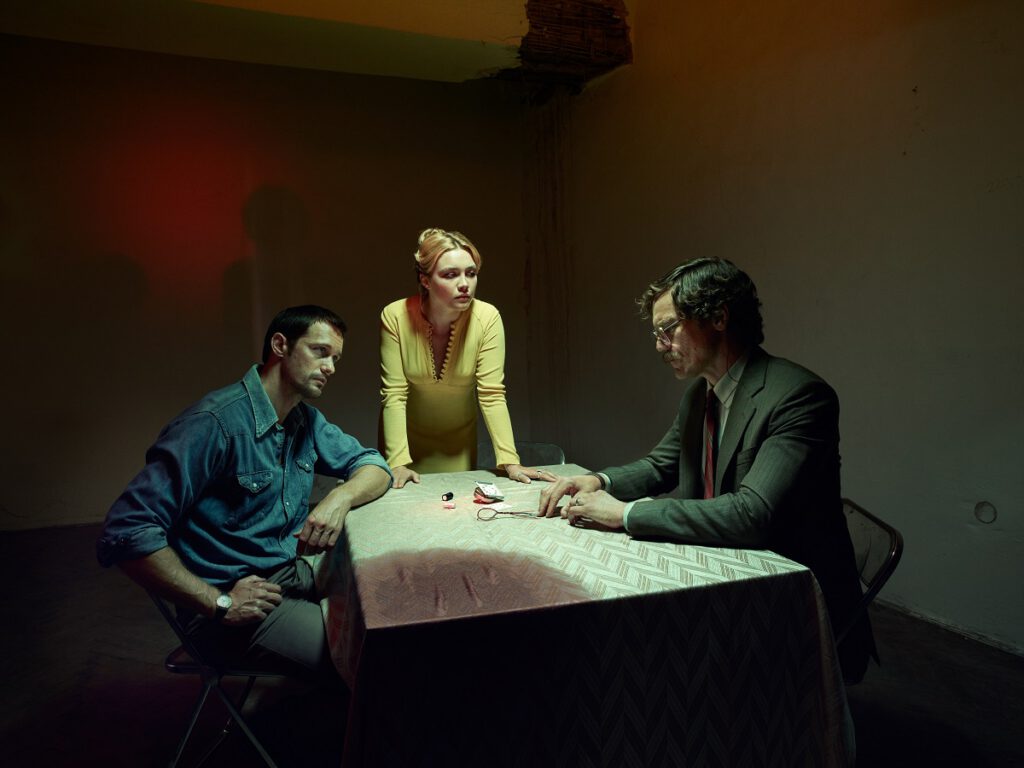Park Chan-wook’s attention to detail is well-known among cinephiles. From the brutal beauty of his Vengeance Trilogy (“Sympathy for Mr. Vengeance,” “Oldboy,” and “Lady Vengeance”) to his stunning work on 2016’s “The Handmaiden,” he doesn’t leave much to chance. His films often feel like incredibly calculated affairs, and yet he still somehow allows for human fallibility and emotion to feel genuine. He’s a stylish, meticulous filmmaker who only rarely allows that style to smother his characters. All of this makes him kind of a perfect fit for John Le Carre, a masterful writer who was also obsessed with detail. Park makes his TV debut directing all six episodes of AMC’s adaptation of Le Carre’s “The Little Drummer Girl,” and the result is a sometimes drawn-out affair but in a way that the filmmaker clearly loves. And his passion for the detail and procedure of espionage is infectious, both to his A-list cast, who all deliver, and to us as viewers.

“Now the fiction and reality become one.” This line is said almost four full hours into “The Little Drummer Girl,” which unfolds in a very unique manner—in two-episode installments over three nights. For the first 2/3rds of the mini-series, we’re witnessing what is largely set-up, but Park and his team dive deep into that set-up, illustrating the difficulty in going so deep undercover that you might possibly lose yourself. This is what happens to Charlie (Florence Pugh), an actress recruited by an agency in 1979 led by an Israeli spy named Martin Kurtz (Michael Shannon) and trained by a fellow spy named Becker (Alexander Skarsgard). Charlie and Becker blur the lines between her real personality and that of the woman she will become, infiltrating a group of Palestinian terrorists. In a sense, Martin is the director of this little play, and Becker is the writer. Charlie will be the star.
That little plot recap only hints at the complexity of “Little Drummer Girl,” but this is the kind of piece you can appreciate even if you don’t follow the plot (or find it sometimes convoluted). Not only does Park bring copious amounts of style and beauty to the filmmaking, but he directs his leading lady to one of the fiercest, most fascinating performances of the TV year. Charlie is an actress interested in pro-Palestinian causes, and those two elements of her personality impact the way she engages in the world of espionage. She lights up during scenes of what are basically “back story,” something common to both performers and undercover spies. And Pugh brilliantly conveys the malleability of her character without ever feeling like a device. Many actresses would have gotten lost in this part, losing it to the charade or politics, but Pugh never does. Shannon and Skarsgard are both very good, but the series belongs to Pugh.
Well, Pugh and Park. The international dynamic at play in the production of “The Little Drummer Girl” starts to feel like it adds a layer of tension and personality to the overall affair. After all, it’s a Korean director helming a piece with American and British stars about an Israeli-led spy mission. There are scenes when Park’s outsider status feels almost replicated in the storytelling, adding an effective sense of otherness and confusion to what we’re watching, whether it’s the sometimes-odd-sounding dialogue or compositions that feel like the rest of Park’s filmography. “The Little Drummer Girl” is about an outsider to the culture in which she’s going undercover and it’s different than it would have been were it made by a Brit or Israeli. There’s something just a bit off about every episode in a way that makes it distinctly Park’s, and often riveting.
Some people will feel that the story was drawn out to meet a six-episode contract as if four episodes wouldn’t feel as prestigious, and they’d have a point, but the pace of “The Little Drummer Girl” feels appropriate for Le Carre and the subject matter at hand. Park and this series really blur the lines between actress, spy, and terrorist, noting how much all three rely on scripted narratives to accomplish their goals. It’s another high-profile mini-series that rewards the patient, and further proof of its director’s international importance.












